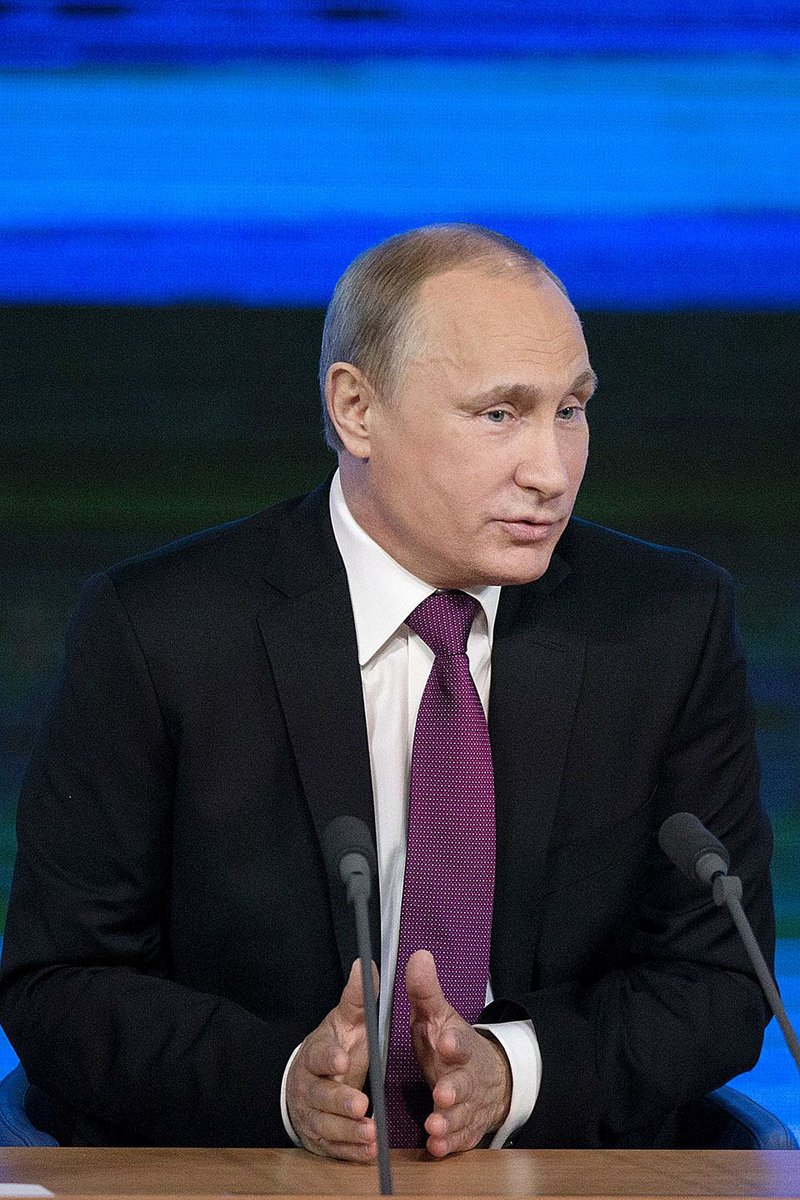MOSCOW -- President Vladimir Putin tried to play down Russia's dire economic straits in his annual news conference Thursday, attributing the troubles to declining oil prices that, after a short period of economic turbulence, were bound to recover along with global demand.
RELATED ARTICLE
http://www.arkansas…">Russian crew exits France; warship stays
"We are going through a trying period, difficult times at the moment," Putin said at the three-hour meeting with 1,200 reporters from Russia and around the world. "I would not call the situation a crisis. You may call it whatever you want."
Russia's oil- and gas-dependent economy crashed this week, with the ruble testing historic lows of 80 to the dollar before rallying to closer to 60, still down about 40 percent on the year. Analysts said the panic reflected not just the oil-price drop but investors' distrust of the government's ability to cope with the crisis or to promote economic growth through something other than the extraction of natural resources.
"Economically, socially and politically, the country will have to go through severe economic tests in the years to come," said Dmitri Trenin, the head of the Carnegie Moscow Center. "Not having a working, realistic, credible model for economic development, not just muddling through, will become critical."
Addressing these concerns, Putin repeated several times that he thought Russia's central bank and the government overall were doing the right things to halt the ruble's nose dive, if acting slightly late. The president did not present any new policies or a specific plan to address the mushrooming problems.
"I believe that the central bank and the government are taking adequate measures," he said.
Putin described the problems as mainly rooted in external factors -- the approximately 50 percent drop in oil prices this year along with Western sanctions imposed over Ukraine -- and acknowledged that it might take up to two years for the country to emerge.
That assumes the slump in oil prices is traceable to slow global growth, particularly in China. However, energy strategists have pointed to surging North American production and increasing substitution of other fuels in response to climate change as factors that might dampen oil prices indefinitely.
Currently, Russians are worried about the ruble collapse and inflation, expected to reach 10 percent by the end of the year and to climb even higher early next year. They have flooded car dealerships, appliance stores and malls to spend savings before their rubles lose any more value.
Putin blamed the West for many of the problems, saying it has historically conspired to tear down Russia every time it seems to gain strength. On this occasion, he found a new, vivid image, saying that the West was trying to restrain the Russian bear by using NATO to come up to the very borders of Russia.
The West wants the bear to sit around eating honey and berries, not chasing around the forest after piglets, Putin said, suggesting that its adversaries wanted to turn it into a stuffed animal.
"They won't leave it alone, because they will always seek to chain it," he said. "Once they manage to chain it, they will rip out the teeth and claws." The teeth and claws in this case are nuclear deterrence, he said.
Putin conceded that Russia had contributed to a recent rise in global tension through long-range military surveillance flights across Europe and along the edges of North America. He said Russia had abandoned such flights for too long while the United States continued such surveillance, so now the "only thing we have done is to protect our interests in a tougher way."
Putin said that perhaps 25 percent of the economic problems were caused by sanctions but conceded that Russia had not done enough to diversify an economy in which energy resources constitute 60 percent of the country's exports.
While Putin was speaking, the European Union imposed an array of new sanctions involving investment, services and trade on Crimea, including banning investments and barring cruise ships from stopping.
In Moscow, the Russian Foreign Ministry issued a statement calling the decision "confrontational."
During his news conference, Putin said any economic problems linked to Russia regaining Crimea should not be thought of as punishment but as the price that had to be paid to defend Russia's sovereignty.
Russian corporations owe some $650 billion to Western banks, but sanctions have severed any refinancing for that. The country holds some $419 billion in foreign reserves, Putin noted, although some analysts say that as much as half of that is tied up in other obligations, like pensions.
Putin stressed that Russia wanted to solve the crisis in Ukraine and said he thought President Petro Poroshenko of Ukraine did, too, but that some nationalists there did not.
In response to a question from a Ukrainian reporter about how many Russian soldiers had been dispatched into eastern Ukraine and how many died there, Putin again called Russians fighting there volunteers.
Information for this article was contributed by Andrew Roth of The New York Times.
A Section on 12/19/2014
